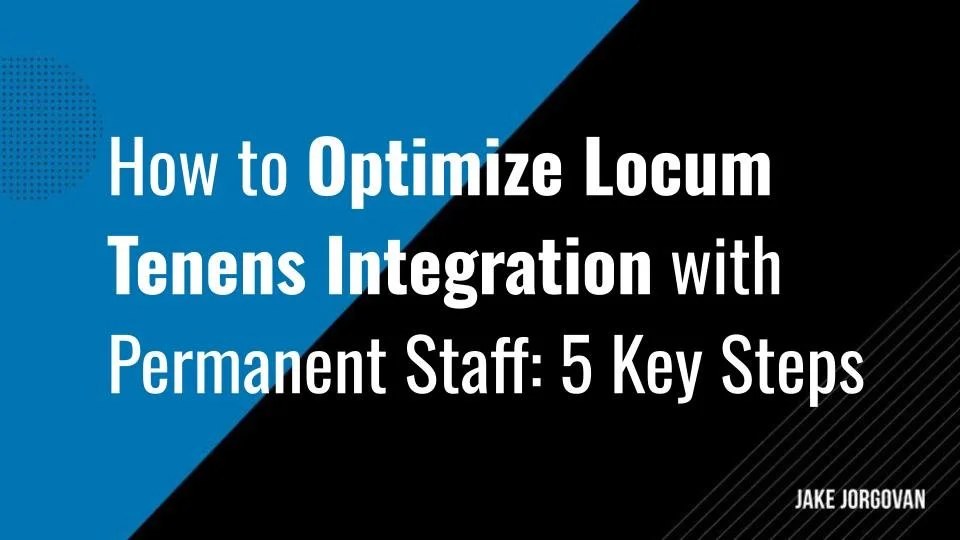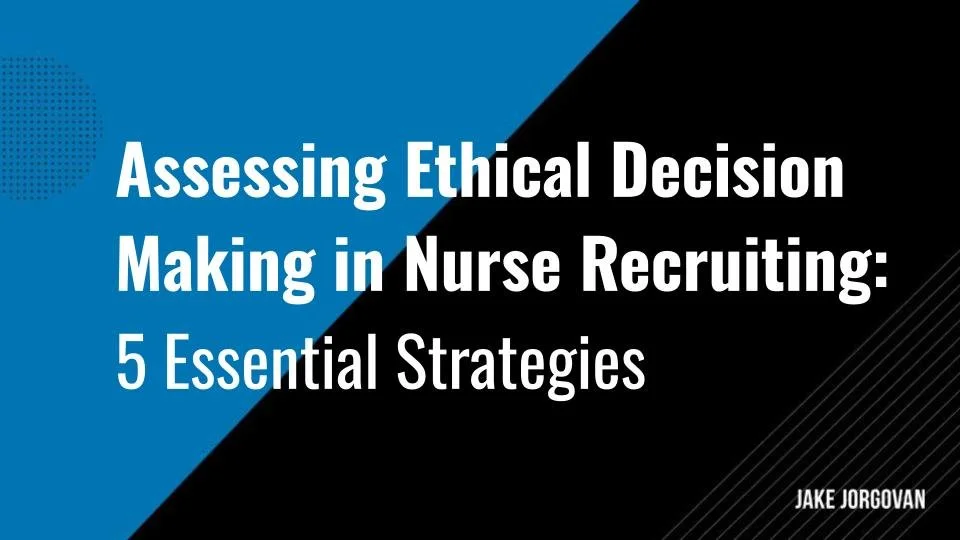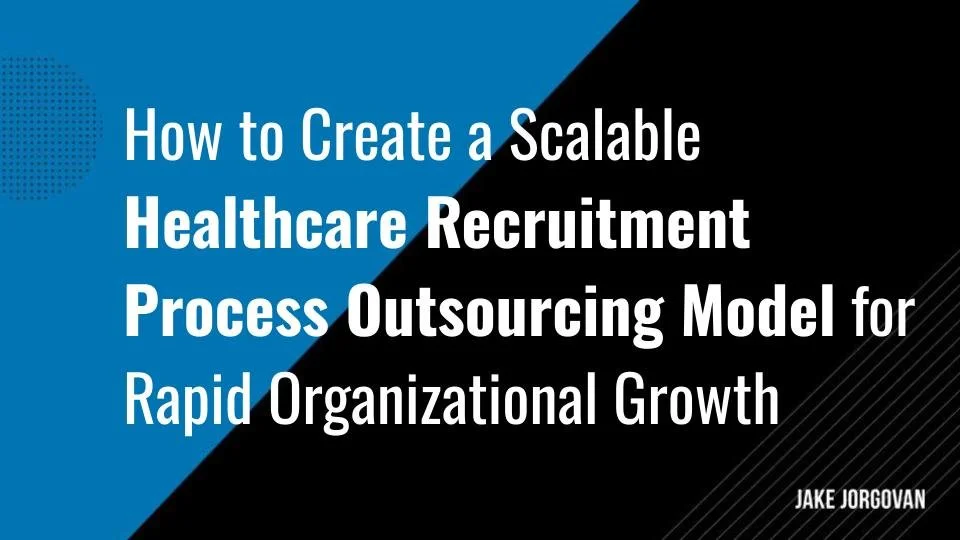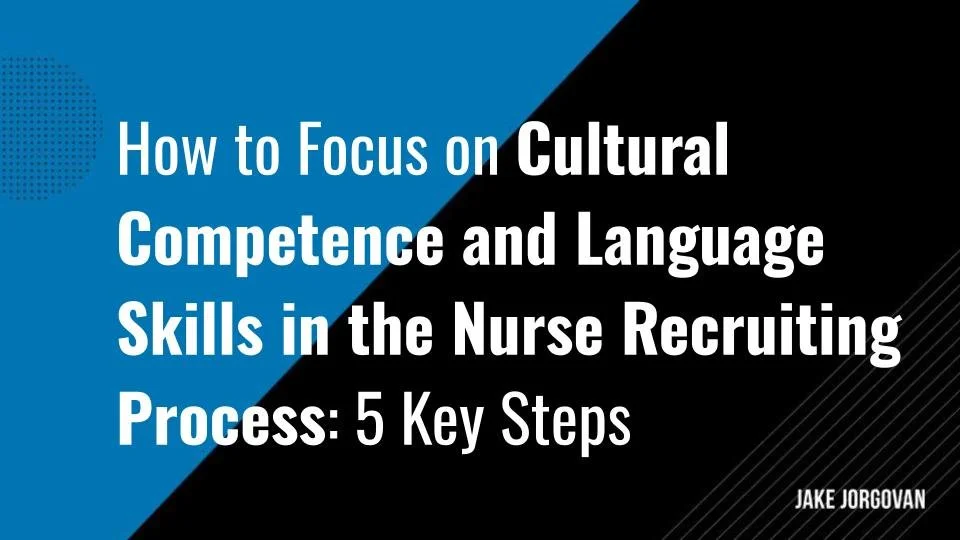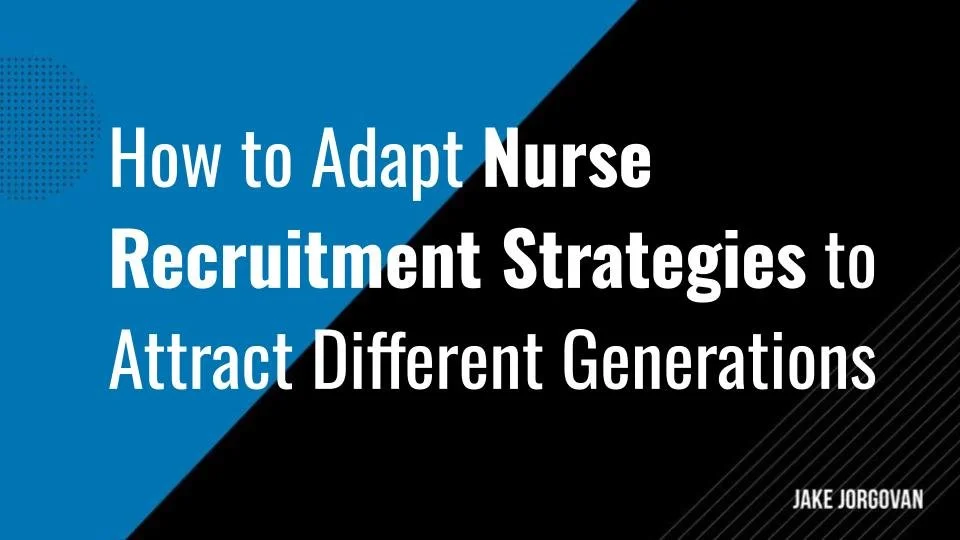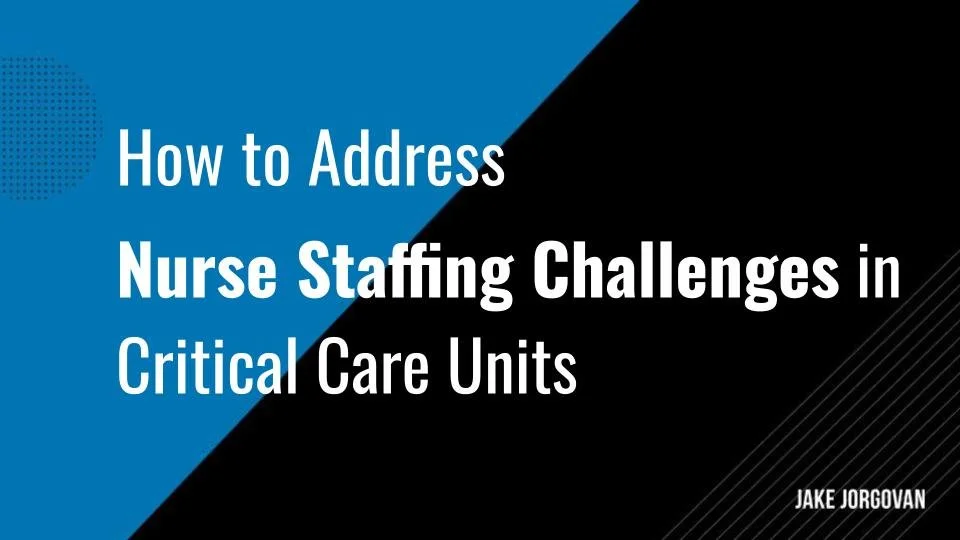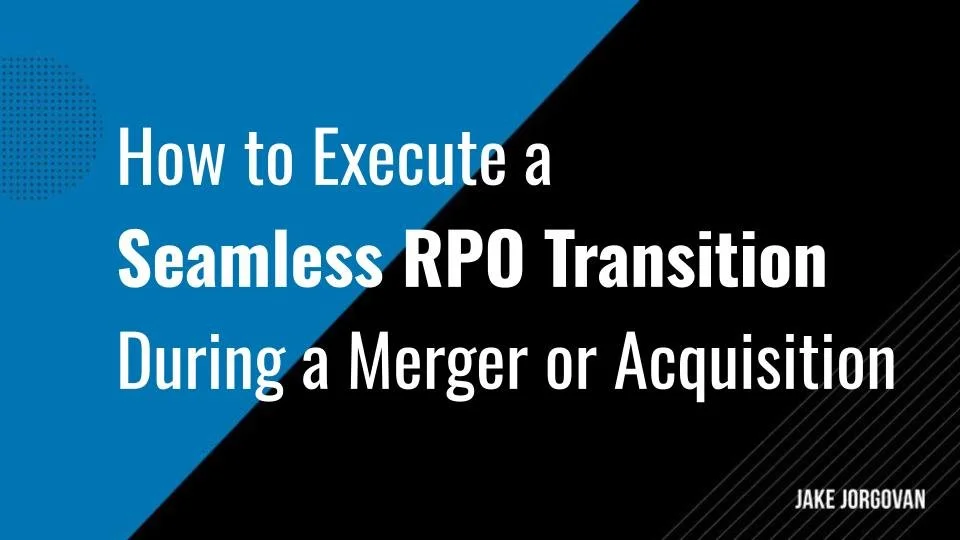Executive Search in Healthcare: Building Strong Medical Teams in 2025
Executive search in healthcare is transforming how organizations build leadership teams.
In 2025, the stakes are higher, driven by rapid advancements and shifting patient care demands.
Key shifts in healthcare are:
AI integration in clinical decision-making.
Rising emphasis on personalized medicine.
Growing need for leaders who navigate regulatory changes.
Increased focus on patient experience and outcomes.
Leadership is now more than just management. It’s about steering through change.
I’ll explore how strategic executive search is key to finding leaders who can thrive nowadays.
The Role of Leadership in Healthcare
Leaders play a key role in shaping the future of healthcare by skillfully merging patient care with operational efficiency. They are the driving force behind fostering innovation within their organizations, often anticipating industry shifts and trends well before they manifest, allowing them to stay ahead of the curve.
Effective leadership in healthcare goes beyond merely overseeing day-to-day operations; it involves seamlessly integrating new technologies into existing frameworks.
This not only enhances patient outcomes but also significantly boosts staff morale, creating a more dynamic and motivated workforce.
Key strategic leadership roles in regulatory compliance involve:
Strategic foresight: Leaders predict regulatory trends early on.
Policy integration: They align organizational policies with regulatory requirements seamlessly.
Risk management: Effective leaders mitigate risks through proactive measures.
Stakeholder communication: Clear communication ensures all parties understand regulatory impacts.
Continuous adaptation: Leaders update processes regularly to maintain compliance.
This approach results in sustained organizational growth and improved patient outcomes.
Challenges in Healthcare Executive Search
Healthcare executive search faces significant challenges as finding the right talent requires precision and strategy.
Leaders must win over a competitive market while addressing the specific needs of their organizations.
Key challenges in healthcare executive search include:
Talent scarcity: High demand for skilled leaders outpaces supply.
Competitive market: Organizations vie for top candidates aggressively.
Cultural fit: Candidates must align with organizational values.
Diversity: Ensuring diverse leadership is increasingly necessary.
Regulatory knowledge: Candidates must understand complex healthcare regulations.
Technological acumen: Leaders need proficiency with emerging healthcare technologies.
Simply filling positions isn't enough. Healthcare organizations need leaders who not only meet qualifications but also drive future success.
These challenges significantly impact the search for top-tier healthcare executives, so organizations must adapt their strategies to secure the right leaders.
Their impact involves:
Extended timelines: Finding qualified candidates takes longer due to talent scarcity.
Increased competition: Organizations often lose candidates to better offers.
Compromised fit: Pressure to fill roles quickly can lead to poor cultural alignment.
Diversity gaps: Balancing diversity with qualifications becomes more challenging.
Higher costs: Competitive markets drive up compensation demands.
Specialized expertise: Leaders with regulatory and technological knowledge are rare.
These factors complicate the healthcare recruitment process. It’s not just about filling roles; it’s about finding leaders who fit perfectly within the organization. This requires careful planning, extensive networks, and a deep understanding of the market.
How to Ensure a Strategic Healthcare Executive Search Process
The strategic approach to executive search in healthcare encompasses several precise steps. Each phase is designed to maximize fit and success.
Strategic executive search steps are:
Needs assessment: Organizations define precise leadership requirements.
Market analysis: Consultants evaluate current market conditions.
Targeted search: Search focuses on high-probability candidates.
Screening process: Candidates undergo rigorous evaluation.
Interviews: Structured interviews assess fit and competency.
Reference checks: Past performance and credentials are verified.
Selection: The best candidate is chosen for the role.
Negotiation: Terms and compensation are carefully negotiated.
Onboarding: Effective integration into the organization is facilitated.
This structured approach ensures not just the identification but also the retention of capable leaders.
Each step is critical, requiring careful attention to detail and strategic foresight to ensure alignment with organizational goals and culture.
Successful executive search relies on leveraging extensive networks and rigorous assessments. Identifying the right leaders goes beyond basic qualifications.
Key elements of strategic executive search include:
Extensive networks: Access to a wide pool of candidates.
Industry connections: Networks that include top-tier professionals.
Rigorous assessments: In-depth evaluations of skills and experience.
Behavioral analysis: Understanding how candidates approach challenges.
Cultural alignment: Ensuring candidates resonate with organizational values.
Values matching: Candidates' personal values align with the organization's mission.
Holistic evaluation: Assessing both professional and personal attributes.
These elements ensure that the selected leaders not only fit the role but also thrive within the organization. Effective search processes integrate both technical skills and cultural alignment, leading to long-term success and reduced turnover. This strategic approach results in a leadership team that can drive the organization forward.
Insider Tip:
For even better results, consider partnering with a healthcare recruitment process outsourcing company. These specialized firms have deep expertise in the healthcare sector and can streamline your recruitment process, ensuring you attract and hire top-tier talent efficiently. By leveraging their resources and industry knowledge, you can focus on refining team dynamics and operational efficiency, confident that your recruitment efforts are in expert hands.
Tips to Build Strong Medical Teams in 2025
Apart from hiring a good healthcare executive, building effective medical teams requires intentional strategies.
Implement these tips to enhance your team dynamics and operational efficiency:
Foster open communication: Encourage transparent dialogue across all levels.
Set clear expectations: Define roles and responsibilities explicitly.
Invest in development: Provide training that enhances professional growth.
Cultivate respect: Promote a culture of mutual respect.
Encourage feedback: Implement regular feedback mechanisms.
Recognize achievements: Acknowledge individual and team contributions.
Support work-life balance: Help team members manage personal and professional demands.
Encourage continuous learning: It keeps your teams ahead of healthcare industry changes.
Using these strategies helps you build a cohesive and efficient team. When you emphasize open communication, clear expectations, and continuous development, your team not only performs better but also experiences greater job satisfaction and engagement.
Insider Tip:
Implement cross-disciplinary shadowing within your teams. Encourage members from different specialties to observe others’ roles briefly. This practice enhances understanding, fosters empathy across disciplines, and promotes a more collaborative atmosphere.
Case Studies and Success Stories of Successful Healthcare Executive Search
In recent years, several successful executive placements in healthcare have demonstrated significant positive impacts on their organizations.
COO to CEO Transition at a Midwest Hospital: Endeavor Agency helped a female COO transition to a CEO role at a Midwest hospital. Through strategic branding, resume overhaul, and targeted interview coaching, she stood out among male candidates with CEO experience. Her successful placement resulted in a 40% increase in compensation and a leadership role that significantly impacted the hospital’s operations and patient care.
Banner Health: Peter S. Fine, CEO of Banner Health, has been instrumental in transforming the healthcare system. Under his leadership, Banner Health has seen significant improvements in clinical results, such as a reduction in central line-associated bloodstream infections and increased inpatient mobility. This success is partly attributed to his focus on integrating patient-centric technology and reforming patient care.
Corewell Health: Tina Freese Decker, President and CEO, has been pivotal in the merger between Beaumont Health and Spectrum Health, forming Corewell Health. Her leadership has been central to guiding the organization towards providing affordable and equitable care across its network.
These cases underscore the importance of strategic executive search processes in achieving long-term success and stability within healthcare organizations.
Future of Healthcare Leadership
The future of healthcare leadership and executive search is constantly changing, with new trends emerging that reflect broader changes in technology, society, and policy.
I’ve spotted the following trends in healthcare leadership and executive search:
Greater reliance on AI: AI will streamline candidate assessments.
Emphasis on soft skills: Emotional intelligence will become a top priority.
Hybrid work models: Flexible working arrangements will be standard.
Increased diversity: Boards will seek diverse leadership teams.
Sustainability leadership: Executives must drive eco-friendly initiatives.
Focus on innovation: Leaders must be adept at managing change.
Data-driven decision-making: Big data will guide strategic choices.
These trends highlight the shifting priorities in healthcare leadership. Future leaders must be technologically savvy, highly adaptable to change, and capable of leading diverse and geographically dispersed teams. This evolution in leadership needs will profoundly impact how executive searches are conducted, with a stronger focus on versatile skill sets and digital literacy.
Securing Tomorrow’s Healthcare Executives
Strategic executive searches are essential for building robust healthcare teams that can meet future challenges.
The right leaders drive innovation, adapt to reforms, and ensure operational excellence. Without a precise search process, organizations risk misalignment and missed opportunities.
Investing in finding and nurturing the right leaders is non-negotiable for sustained success. As healthcare evolves, so do the demands on leadership.
Leaders must be tech-savvy, adaptable, and globally aware.
Prioritizing these qualities in executive searches ensures that your organization is equipped to navigate the complexities of modern healthcare.
Your future success depends on the strength of your leadership team.










